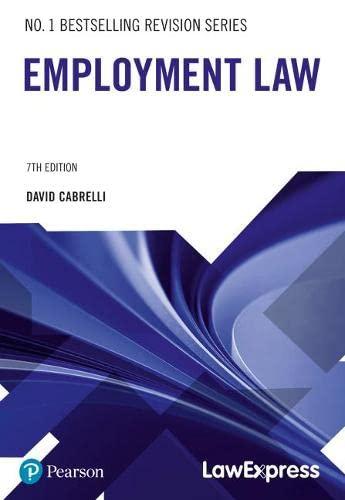Question
The United States ratified the Budapest Convention (Council of Europe Convention on Cybercrime) in 2006. Assume that subsequent to ratification, in 2016, the Senate passed
The United States ratified the Budapest Convention (Council of Europe Convention on Cybercrime) in 2006. Assume that subsequent to ratification, in 2016, the Senate passed an amendment to the Computer Fraud and Abuse Act that contradicts several provisions of the Budapest Convention. Jingo, an IT company, is prosecuted by the Department of Justice (DOJ) under the Computer Fraud and Abuse Act (CFAA) and claims that the amendments are invalid since they contravene the treaty. They cite as evidence an executive order signed by PresidentTrump in 2017 that supports Jingo's interpretation. Which of the following is the best statement of who should win, and why?
1) The DOJ, because under the last-in-time rule federal statutes trump treaties if they have been enacted more recently.
2) The DOJ, because federal statutes always trump conflicting executive orders.
3) Jingo, because a treaty is second only to the U.S. constitution as a source of U.S. law.
4) Jingo, because once properly ratified treaties trump all other U.S. law, especially when they are reinforced through Presidential Executive Orders.
Step by Step Solution
There are 3 Steps involved in it
Step: 1

Get Instant Access to Expert-Tailored Solutions
See step-by-step solutions with expert insights and AI powered tools for academic success
Step: 2

Step: 3

Ace Your Homework with AI
Get the answers you need in no time with our AI-driven, step-by-step assistance
Get Started


